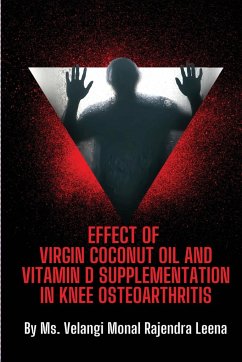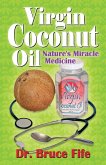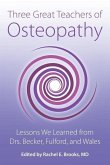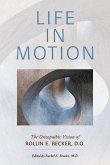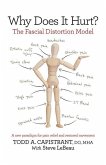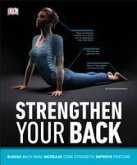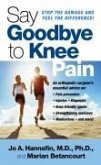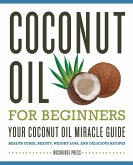The increasing global prevalence of Knee osteoarthritis (OA) suggests a strong need to control various risk factors of its occurrence as well as progression. This book is based on a study to assess the effect of vitamin D and Virgin Coconut Oil (VCNO) in Knee osteoarthritis (KOA). The study was conducted in two phases. In Phase I, 300 KOA patients were screened for vitamin D status and 270 patients with low serum vitamin D level were selected purposefully. They were assessed for stage of KOA, clinical signs and symptoms, anthropometric measures (BMI, WHR) and body composition (Total body fat, BMD, LBM using BIA), bone turnover (serum vitamin D, calcium and phosphorus), inflammatory markers (CRP, ESR), pain and functional abilities (VAS, WOMAC and 6-MWT); dietary energy and nutrient intake, and dietary patterns using standard techniques. Based on the results, suitable diet and exercise guidelines were suggested. For Phase 2 of the study, 100 early KOA participants from phase 1were selected purposively and divided into 2 groups (E1 and E2). A 12 week intervention was carried out during which E1 received Vitamin D3 (n=50) and E2- Vitamin D3 and VCNO (n=50) supplementation. Post-intervention all the parameters were reassessed along with sCOMP in a sub sample (n=80). Data was analyzed using SPSS 16.0. Results of Phase I found the following: Two hundred and seventy participants had low serum vitamin D status with majority suffering from bilateral KOA. With the disease progression, the clinical symptoms increased. Serum biomarkers - vitamin D (p¿.05), calcium (p<.001) and phosphorus (p<.001) decreased, while ALP (p<.001), CRP (p<.001) and ESR (p<.001) increased highly significantly. VAS score and total WOMAC scores increased, while distance covered during 6MWT reduced highly significantly (p<.001). Gender differences were seen in various parameters. Dietary energy and nutrient intake were inadequate except for total fat. Consumption of Vitamin D3 and calcium rich foods was poor. Total Vitamin D3 intake was significantly lower than the RDA among the participants. A significantly negative correlation was found between Serum vitamin D3, CRP (p<.05) and VAS score (p < .001) and positive correlation with total vitamin D3 intake (p<.05). Accordingly, sun exposure, consumption of balanced diet especially Vitamin D3 and calcium rich foods, and exercise were suggested. Results of Phase II found the following: A significant rise in serum vitamin D3 levels (p<.001) and reduction in Total WOMAC score (p<.001), vitamin D3 intake (p<.001), Serum CRP (p<.001) and ESR status (p<.001), and sCOMP level (p<.001) were observed upon supplementation, with more effect in E2. Mean sCOMP levels were significantly higher (p<.05) in grade II than in grade I patients. 6MWT distance was positively and significantly associated with the lower limb muscle mass in both in E1(p<.001) and E2 (p<.05). It is concluded that simultaneous improvement of vitamin D3 status and reduction in oxidative stress should be considered in the early KOA management. Nonconventional antioxidants, anti-inflammatory functional foods such as VCNO could be further explored.
